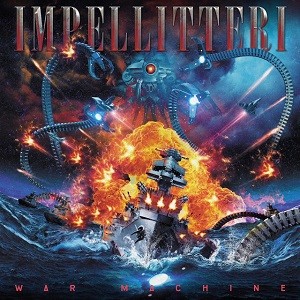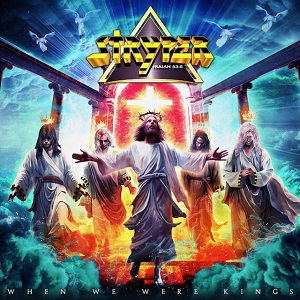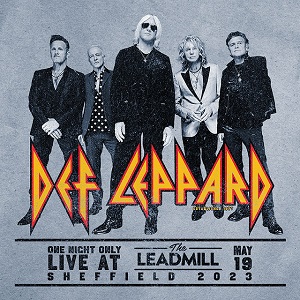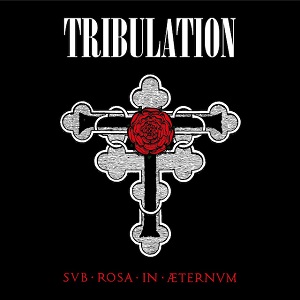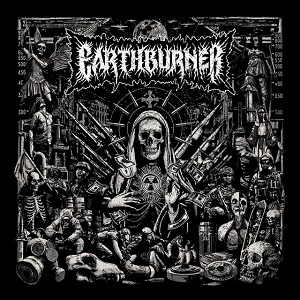DEATH ANGEL - Sing For The Day, Thrash For A Lifetime
October 22, 2013, 11 years ago
Released in 2004, The Art Of Dying marked the return of one of the most exciting thrash bands to claw its way out of the Bay Area in the '80s. DEATH ANGEL became a cult favourite from the moment the unwashed metal legions got wind of them in '86 via the Kill As One demo, releasing three critically acclaimed albums (The Ultra-Violence, Frolic Through The Park, Act III) in only four years. Their rise to fame came to an abrupt halt in 1990, however, following an accident that left drummer Andy Galeon sidelined for over a year. Death Angel inevitably fell apart and the members pursued other projects, reuniting in 2001 in support of a cancer benefit show for TESTAMENT frontman Chuck Billy which started the climb a second time. Three albums and thousands of kilometers/miles travelled to support them, Death Angel are going loud and proud into their 10th year since The Art Of Dying with a record that sounds like a band just as hungry as they were a decade ago.

Time flies when you're having fun. Nobody knows that better than founding guitarist Rob Cavestany, although he'll readily admit is hasn't all been fun and games.
"Oh man, it's weird," says Cavestany. "We've been around longer since our comeback than we were the first time around. When I stop and think about it, it's pretty wild. That said, things are moving so fast that I try not to think about the passing of time, otherwise it'll freak me out (laughs). I already have issues with time and deadlines and feeling like the world is breathing down my neck, so I just try to keep moving forward."The Dream Calls For Blood is an awkward album title perhaps better suited for a prog band with anger management problems, but the music behind it is most certainly Death Angel as they're known and loved. Much of the material is reminiscent of The Art Of Dying's full-on bullet train approach, leaving fans little room to catch more than a breath between songs.
"That wasn't really planned as much as it was hoped for," Cavestany laughs. "When I start writing music I just start writing; nothing's planned. Initially, we were thinking that it would be cool if our next album was really, really heavy, raw, fast, and totally metal. The main idea was to keep a consistent flow on the album, which we haven't really done since The Ultra-Violence because we always incorporate a lot of different influences and various styles. We'll have the occasional acoustic song or a slower tune or a mid-paced tune, and we do that because we like a variety of music. We're just doing what some of our favourite albums do, like QUEEN or LED ZEPPELIN, but doing it in a thrash form. This time around we thought it would be nice if it didn't end up that way. I was thinking that if we didn't end up with slower songs I'd be happy because I like the idea of things being fast and up-tempo all the way through. We wanted to make an album where you don't have to be in the mood for that other kind of song. That was the part that was 'planned', but that was really just in the back of my mind."
The Dream Calls For Blood marks Death Angel's second album with bassist Damien Sisson and drummer Will Carroll, who replaced Dennis Pepa and Andy Galeon respectively prior to Relentless Retribution being recorded. Having been put through their paces for the last three years, this "new" Death Angel went into the new record as a much stronger unit.
"It made a difference that we had a new drummer and new bass player on Relentless Retribution, absolutely," Cavestany agrees. "We were still discovering each other; it was a new experience for us in the studio and on the road. We had to prove that we were still valid with new members in the band. We had to prove that we shouldn't have broken up when Andy and Dennis left, which we had considered at one point in time. We were searching and expressing at the same time, but after touring for three solid years on that album it definitely made the band a different unit. We're so much tighter now and the friendship between all of us is tighter. We're used to each other and everything gels so well that we were excited to make this new album. It had to come up a level because of that.""Writing this album, I had a better understanding of Damien's and Will's styles after playing with them for so long. When I was writing the music I could envision what they were going to do moreso than on the last album.They were also more used to my writing and playing, so I'd bring the basic ideas to the studio and we'd just go at it. Everyone immediately threw down and they were playing what I more or less pictured they were going to play. Either that or it was a slight variation, but it all flowed so beautifully. It was fun that way, and it beats a lot of pushing and pulling and arguing about parts which we've sometimes had in the past. We're all on the same page. That totally inspires me to write more, because I know these guys are excited to hear the next song I have ready to go. I'm stoked because I know it's going to be killer when they throw their parts into the arrangements."

Death Angel as a whole are responsible for the aggression on The Dream Called For Blood, which isn't at all uncharacteristic, but Cavestany is ultimately to "blame" for the album's direction. Not exactly what you'd expect of one of the nicest guys in the biz, but there's something to be said for taking the crap life throws at you and channelling it into something positive; in this case, his music.
"I intentionally drew from emotions that were very aggressive and pissed off. The title track was originally called 'Fucking Fuck' (laughs). It was funny; I was already in a bad mood about something when I wrote that. For instance, I was supposed to meet Will at the studio to go over a few arrangements, and something happened where he didn't show up. I was waiting around and he called me saying he couldn't make it. I was so pissed that he flaked out and I'd wasted my afternoon that I went home and channelled that anger into a song. I did it on purpose. I went to my studio at the back of my house and decided to write a song as pissed off as I was at that moment because that's how you're supposed to do metal (laughs). By 4:00am I was listening back to demo and it was such a therapeutic thing because at the end I felt fine. I released all that anger into the music and I'm really proud of the song that came out of it. I don't know how you're supposed to write the blues if you're not sad. Same thing in metal.""I wrote a lot of the album while I was in that state of mind, so it was pretty trippy for me," Cavestany adds. "I'd never consciously done that before. I wanted to write an album that makes people feel empowered because they can relate to the feelings that I'm experiencing or that we as a band are going through. We're not just bitching about the things that are pissing us off, we're talking about them with the attitude of 'You're going to overcome this shit.'"








